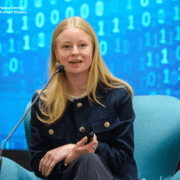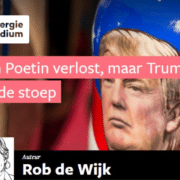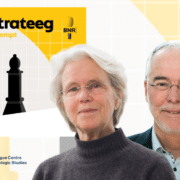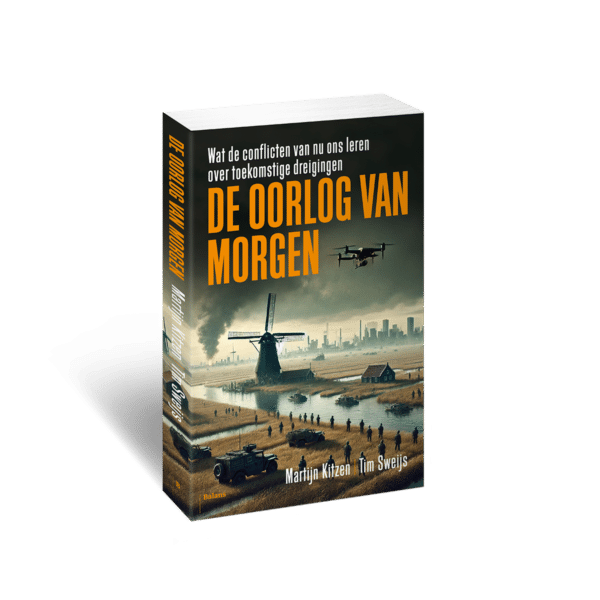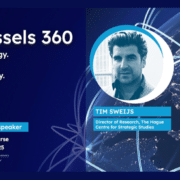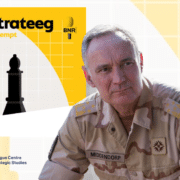Information Threats | HCSS analyst Laura Jasper on International Fact Checking Day
To mark International Fact-Checking Day, the Anti-Disinformation Network for the Balkans (ADN-Balkans) organised two regional events taking place in Skopje and Tirana, gathering fact-checkers, journalists, researchers, policymakers, and civil society leaders from across the Western Balkans and Europe.
Strategic Analyst Laura Jasper joined the conference “Together for Truth: Whole-of-Society Approach to Safeguard Democracy” in Skopje, North Macedonia, on April 2, as a panel speaker.
Jasper was part of the panel on “Geopolitical 360 in Information Threats – European Learned Lessons shared for the Western Balkans”.
Hosted by Metamorphosis Foundation, the full-day international conference can be rewatched here:
Laura’s contribution was titled ‘Start with the End’, after one of her recent publications on the topic, and around the philosophy to start, not with tools, but with purpose. Rooted in the idea that to effectively address information threats, we must first define the outcome we want and work from there, she emphasized the need for shared understanding, multidisciplinary responses, and a values-based approach to strengthening the information environment as a cornerstone of democracy.
“The information environment is integral to the foundations of democracy because it is where people make decisions. The legitimacy of democracy therefore is rooted in the ability of people to make free and informed decisions,” Laura stated during her presentation.
Continuing, Laura added: “While in the past autocrats, regimes, and adversaries, used the power to withhold information, think of the secret police, censorship, and oppression of the truth. We are now seeing the complete opposite, namely excess of information where instead of little information that is available to the public, the public is now flooded with information on a daily or even hourly basis.”
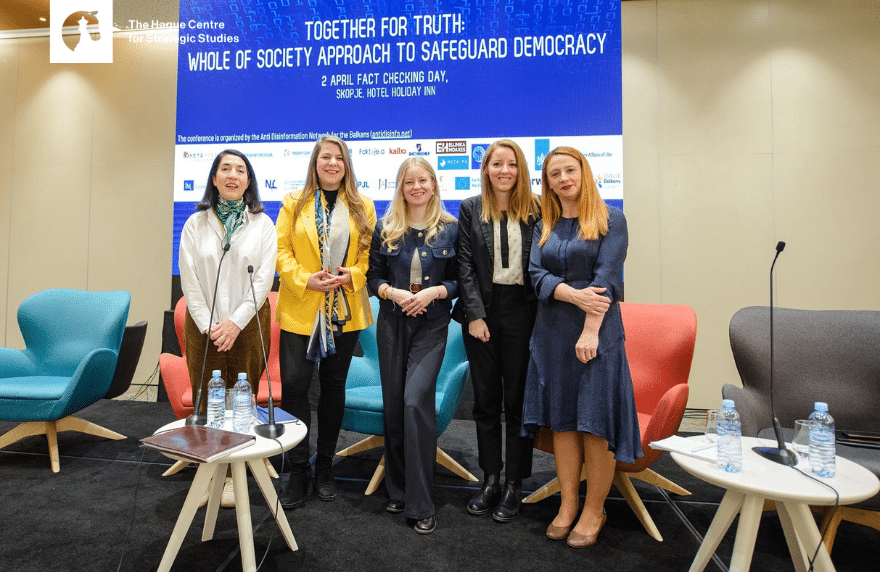
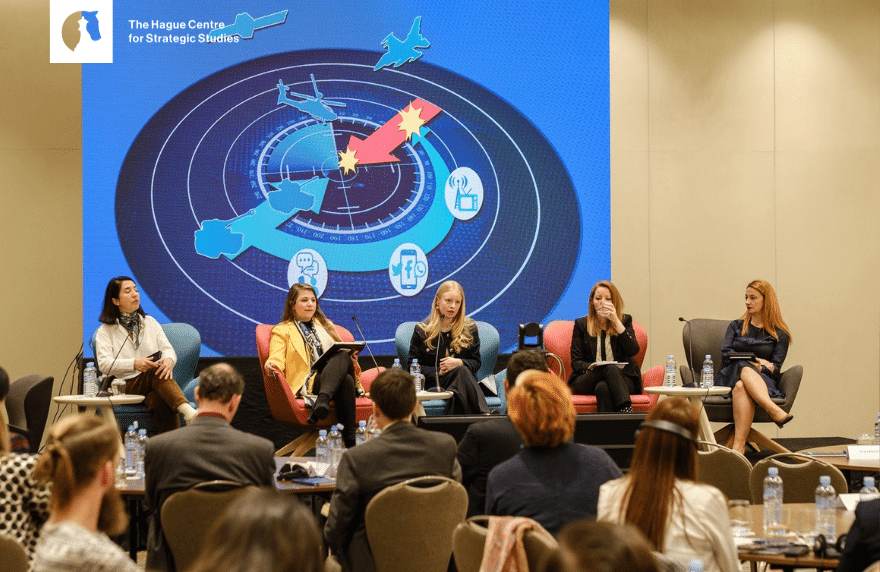
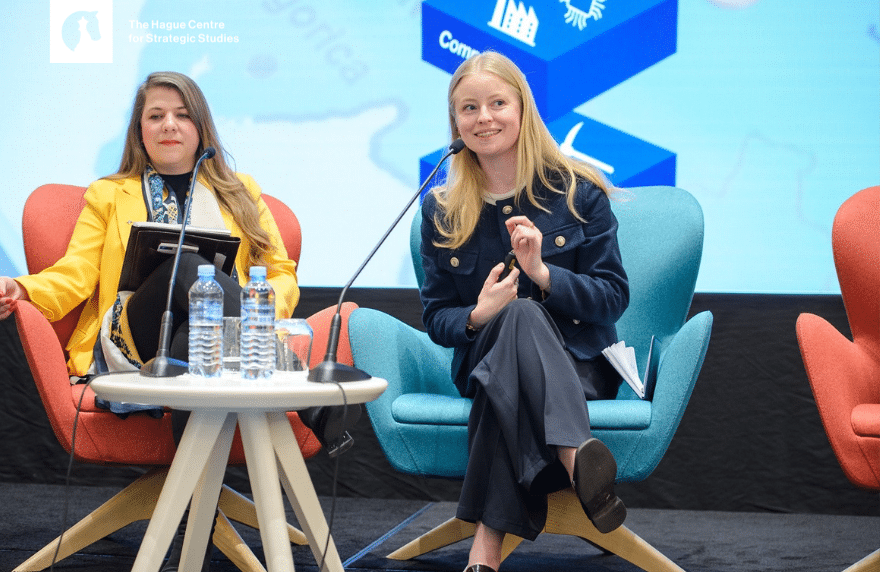
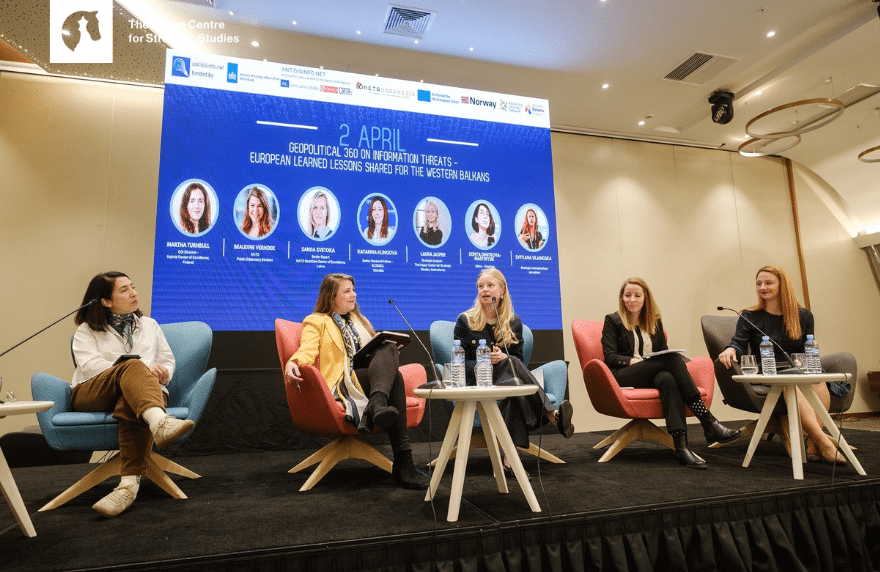
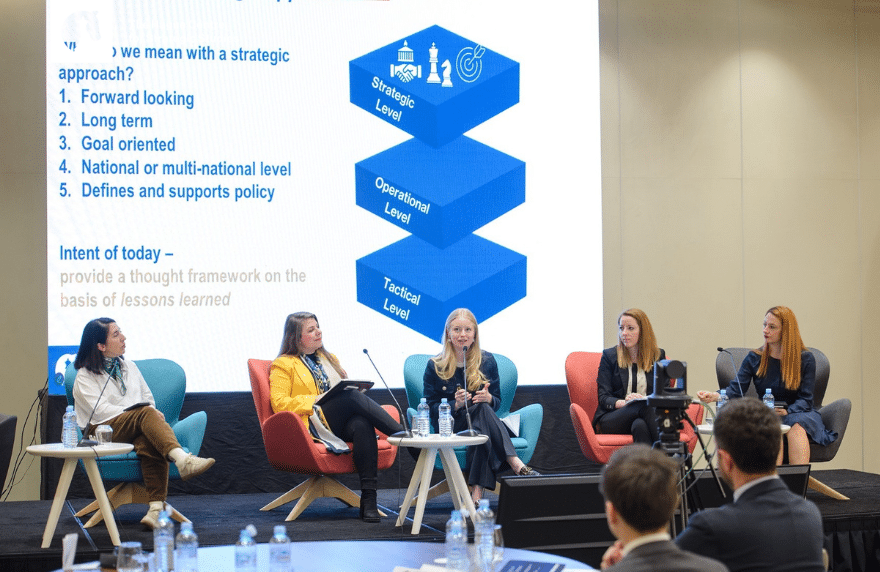
The all-female panel, moderated by Svetlana Siljanoska (Strategic Communications Consultant), also included:
- Martha Turnbull (COI Director – Hybrid Center of Excellence, Finland)
- Beaudine Verhoek (NATO Public Diplomacy Division)
- Sanda Svetoka (Senior Expert – NATO StratCom Center of Excellence, Latvia)
- Katarina Klingova (Senior Research Fellow – GLOBSEC – Slovakia)
- Sonya Dimitrova-Martinyuk (Editor – StopFake, Ukraine)
The full program can be downloaded here (PDF).

